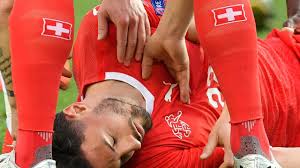November 24 – Two expert panels that advise football’s lawmaking body, the International Football Association Board (IFAB), have backed the idea of additional concussion substitutes plus a clarification of the handball law which has caused such angst throughout the season.
A statement from IFAB said its football and technical advisory panels (FAP-TAP) supported the idea of trialling additional permanent substitutes when a player was suspected to have suffered a concussion “as soon as possible”.
The move comes amid the growing debate around dementia in the sport and was followed by an English Football Association statement that it would look to implement trials of permanent concussion substitutes “at the earliest possible stages” of both men’s and women’s FA Cup this season.
As well as focusing on concussion substitutes, the panels also concluded there was a need to offer “clarification” on changes to the handball law which has done more harm than good.
Following changes to the law in 2019, handball can be awarded in cases where the player’s arm has made the body “unnaturally bigger” or if it is raised above the shoulder, whether it was intentional or not.
The idea was to make the law clearer but it has had the opposite effect.
The panels re-emphasised that “the final judgement remains with the referee” but pointed that “not every touch of a player’s hand/arm with the ball is an offence”
The panel also looked at the offside law that has been plagued by so many marginal decisions, the idea being to make the game “more attractive and dynamic”.
“It was clear that, if any concrete proposal was to be considered, it would need to be applicable at all levels of the game and easy to apply for the match officials, mindful of the dynamic nature of player’s movement,” IFAB’s statement added.
“It was agreed that extensive trials would be necessary before a law change could be proposed.”
Contact the writer of this story at moc.l1735154940labto1735154940ofdlr1735154940owedi1735154940sni@w1735154940ahsra1735154940w.wer1735154940dna1735154940

